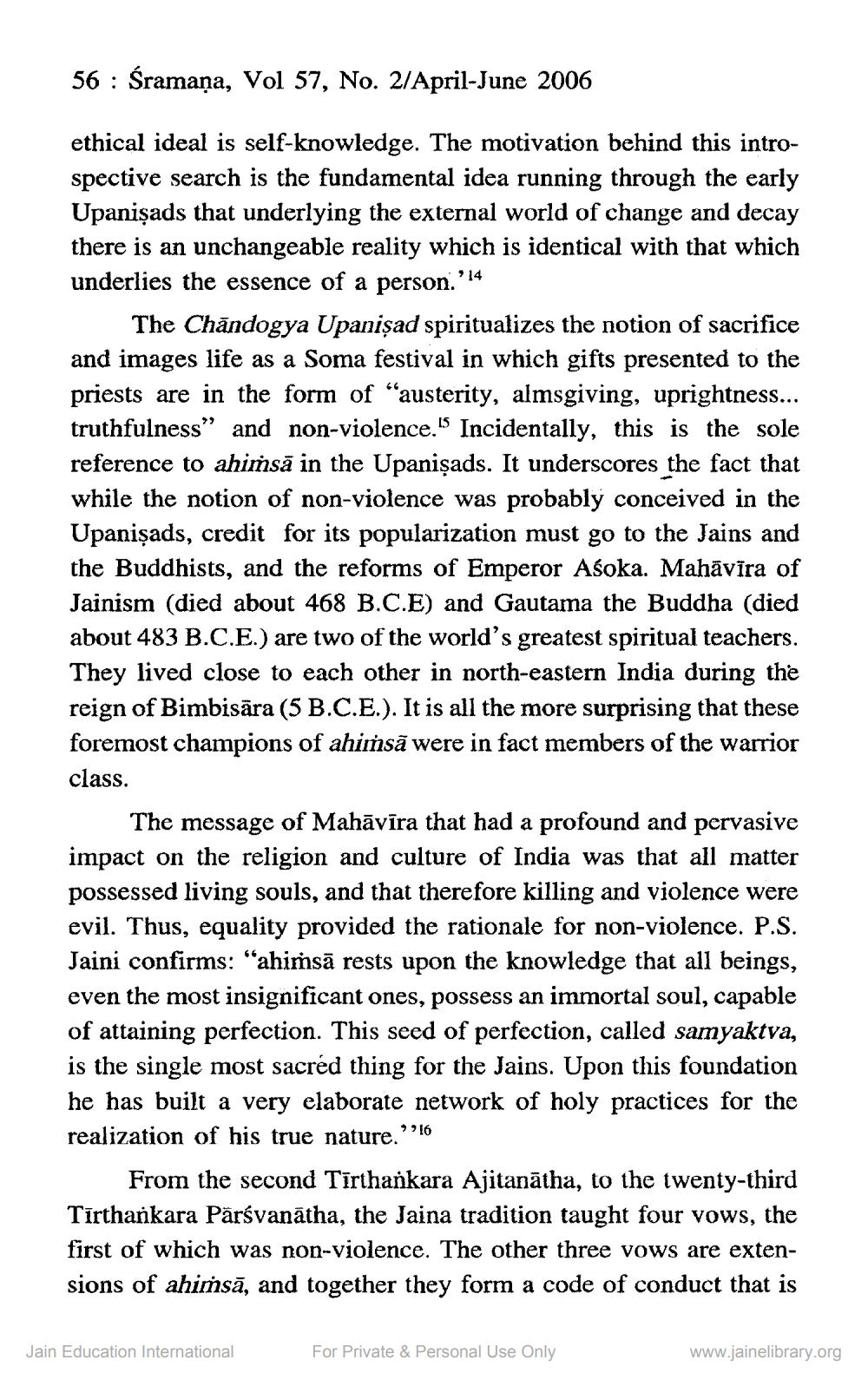________________
56 : Śramana, Vol 57, No. 2/April-June 2006
ethical ideal is self-knowledge. The motivation behind this introspective search is the fundamental idea running through the early Upanişads that underlying the external world of change and decay there is an unchangeable reality which is identical with that which underlies the essence of a person.'14
The Chăndogya Upanişad spiritualizes the notion of sacrifice and images life as a Soma festival in which gifts presented to the priests are in the form of “austerity, almsgiving, uprightness... truthfulness” and non-violence.Incidentally, this is the sole reference to ahimsă in the Upanişads. It underscores the fact that while the notion of non-violence was probably conceived in the Upanișads, credit for its popularization must go to the Jains and the Buddhists, and the reforms of Emperor Asoka. Mahāvīra of Jainism (died about 468 B.C.E) and Gautama the Buddha (died about 483 B.C.E.) are two of the world's greatest spiritual teachers. They lived close to each other in north-eastern India during the reign of Bimbisāra (5 B.C.E.). It is all the more surprising that these foremost champions of ahimsā were in fact members of the warrior class.
The message of Mahāvīra that had a profound and pervasive impact on the religion and culture of India was that all matter possessed living souls, and that therefore killing and violence were evil. Thus, equality provided the rationale for non-violence. P.S. Jaini confirms: "ahiṁsā rests upon the knowledge that all beings, even the most insignificant ones, possess an immortal soul, capable of attaining perfection. This seed of perfection, called samyaktva, is the single most sacréd thing for the Jains. Upon this foundation he has built a very elaborate network of holy practices for the realization of his true nature.”?!6
From the second Tīrthankara Ajitanātha, to the twenty-third Tīrthankara Pārsvanātha, the Jaina tradition taught four vows, the first of which was non-violence. The other three vows are extensions of ahimsā, and together they form a code of conduct that is
Jain Education International
For Private & Personal Use Only
www.jainelibrary.org




